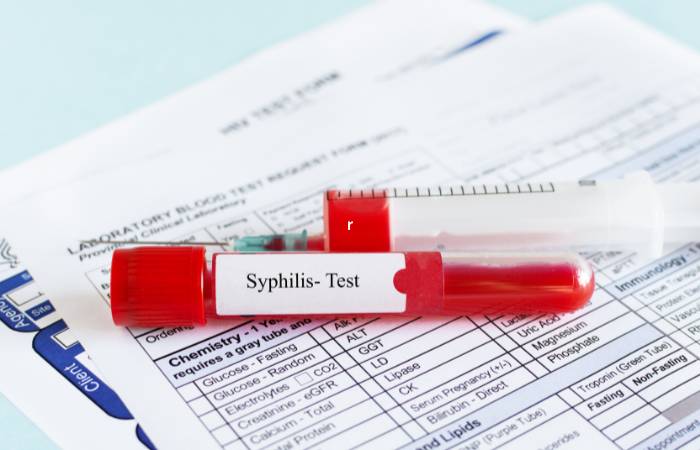Quick Answer: Men can carry STDs like Chlamydia, Gonorrhea, and Herpes with no symptoms at all. Skipping testing risks long-term health issues, fertility problems, and unknowingly transmitting infections to partners.
When Silence Is a Symptom Too
One of the most dangerous myths around male sexual health is this: if nothing hurts, nothing’s wrong. That belief has caused millions of undiagnosed infections, countless untreated partners, and entire generations of men conditioned to see silence as a green light. But here's what the science says, many common STDs are asymptomatic in men, especially in the early stages. According to the CDC, up to 70% of men with Chlamydia report no symptoms. For Gonorrhea, the number is about 50%.
The quiet nature of these infections doesn’t mean they’re harmless. Left untreated, they can cause epididymitis (a painful condition affecting the testicles), long-term urethral damage, prostatitis, and infertility. You might not notice anything for months, no burning, no sores, no discharge. Then suddenly you’re sitting in a clinic being told you’ve been positive for who-knows-how-long. That you’ve passed it to partners. That your sperm count has dropped. That now, treatment may not reverse the damage.
This isn't fearmongering, it’s biology. STDs don’t always scream. Sometimes, they whisper. And when men are taught to ignore whispers, infections thrive.
“I Didn’t Feel Sick, So I Didn’t Test”: Masculinity and the Medical Blind Spot
There’s another layer here, and it runs deeper than symptoms. It’s culture. Socialization. Masculine conditioning that says health is a weakness, vulnerability is optional, and medical care is a last resort. Men are 50% less likely than women to seek preventive healthcare, according to a study published in the journal Sexually Transmitted Diseases. When it comes to STDs, that gap widens even further. Fear of judgment. Embarrassment. The false belief that “only promiscuous people” need testing.
In one Reddit thread, a user confessed, “I felt ashamed to even go to the clinic. I didn’t want to be ‘that guy’, the one who gets tested like he’s doing something wrong.” Another wrote, “I knew something felt off down there, but I told myself it was just stress or dehydration. I didn't want to deal with the possibility of an STD, so I ignored it.”
We have to name this for what it is: a public health crisis wrapped in emotional denial. When men delay testing, they don’t just risk their own bodies, they become silent transmitters. They impact partners, fertility, and community health. And often, by the time they test, the infection has done damage no antibiotic can reverse.

People are also reading: The Game-Changing Impact of Home STD Tests on Sexual Health
What No One Tells You After the Hookup
Jake had a one-night stand while traveling abroad. They used a condom, but it slipped halfway through and he didn’t think much of it. “We were both drunk, I figured she looked healthy, and I didn't feel anything weird afterward.” For nearly a year, he felt completely normal, until his new girlfriend got diagnosed with Trichomoniasis, a parasite Jake didn’t even know existed. “When the doctor told me I was the likely source, I was stunned. I hadn’t had any symptoms. Not even a weird smell or anything. I didn’t even know guys could carry that.”
This happens more often than people realize. Men often assume STDs will “announce themselves” with sores or painful urination. But STDs don’t always play fair. Herpes can live in the body with zero symptoms between outbreaks. HPV in men is almost always silent, yet can still be passed on. Even Syphilis, once thought to be nearly eradicated, is making a comeback among men who report no symptoms until it hits later stages.
According to the World Health Organization, over 1 million new STIs occur daily around the world, and many of them go unnoticed. But unnoticed doesn't mean untransmitted. The math is brutal. One untested man can create a ripple effect of infections simply by not knowing. Simply by assuming.
Check Your STD Status in Minutes
Test at Home with Remedium7-in-1 STD Test Kit

 For Men & Women
For Men & Women Results in Minutes
Results in Minutes No Lab Needed
No Lab Needed Private & Discreet
Private & DiscreetOrder Now $129.00 $343.00
For all 7 tests
Not Testing Doesn’t Just Hurt You, It Hurts Everyone You Love
When Kevin’s girlfriend had a miscarriage, the doctor asked if either of them had ever tested for Chlamydia. Kevin said no. He’d never had a reason to. No pain, no discharge, no “STD behavior,” whatever that meant. But when he got tested, too late to change anything, he was positive. That’s when the pieces clicked. Untreated Chlamydia in men doesn’t always show symptoms, but it can cause inflammatory reactions in sperm, increasing the risk of miscarriage in partners. Kevin broke down in the clinic. “It wasn’t just about me. I was the reason we lost that baby and I didn’t even know I was sick.”
This is the emotional cost of silence. Beyond the biology and beyond the stats are real lives impacted, relationships cracked by avoidable infections, futures altered by untreated inflammation, guilt that no pill can undo. When men don’t test, they gamble with more than just their own health. They put partners, pregnancies, and peace of mind on the line.
It’s not about shame, it’s about responsibility. And yet, the culture rarely invites men into that conversation without judgment. Instead, testing becomes a whispered, shame-laced act. Or worse, a punchline.
“But She Said She Was Clean”, Why Verbal Testing Isn’t Real Testing
Let’s clear something up right now: saying someone is “clean” is not a diagnosis. It’s not a lab result. It’s not even a reliable indicator. It’s stigma wrapped in slang. People lie. People forget. People don’t realize that routine STI panels often don’t test for Herpes unless you specifically ask. The assumption that someone is safe because they “look fine” or “said they got tested last year” is a dangerous loophole.
In a 2023 study published in the Journal of Adolescent Health, researchers found that nearly 40% of sexually active men under 30 believed they didn’t need to test unless symptoms showed up. Even more believed that “asking a partner if they’re clean” was a substitute for real screening. This myth, this casual substitution of conversation for confirmation, is one of the biggest reasons STDs continue to spread, especially among men.
Testing isn’t about guilt or promiscuity. It’s about accountability. You test not because you’re dirty, but because you care. Because you want your partners to feel safe. Because you know that even symptomless infections can cause harm. Especially when left in the dark.

People are also reading: The Evolution of Home Syphilis Test Kits and Their Impact on Public Health
Yes, You Can Get an STD Without Intercourse
One more myth we need to bury: “I didn’t have real sex, so I can’t have an STD.” False. Herpes, HPV, Syphilis, and even Gonorrhea can be transmitted through skin-to-skin contact, oral sex, and even non-penetrative genital contact. You can get Herpes from kissing. You can get HPV from rubbing. You can absolutely get Gonorrhea in your throat from oral sex. And yet, time after time, men say things like, “But we didn’t actually have sex” as if that’s an immunity shield.
This isn’t judgment. It’s reality. STDs are equal opportunity pathogens. They don’t care if you didn’t finish. They don’t care if you wore a condom. They don’t care if it was “just a quick thing.” If there was exposure, there’s risk. And if there’s risk, there should be testing. Simple. Shame-free. Science-based.
Still unsure what kind of testing you actually need? Still debating if your hookup “counted”? You’re not alone. That’s exactly why comprehensive, discreet test kits exist, to take the guessing and the embarrassment out of the equation. At-home kits offer privacy, speed, and peace of mind. You don’t need to justify your choices to anyone. You just need to know your status.
One trusted option is the Combo STD Home Test Kit, which screens for multiple infections in a single, easy-to-use test, no clinic, no awkward conversations. It’s ideal for men who’ve never tested or haven’t tested in over a year. It’s also a solid step toward breaking the silence that surrounds male testing.
Check Your STD Status in Minutes
Test at Home with Remedium6-in-1 STD Test Kit

 For Men & Women
For Men & Women Results in Minutes
Results in Minutes No Lab Needed
No Lab Needed Private & Discreet
Private & DiscreetOrder Now $119.00 $294.00
For all 6 tests
Sexual Health Isn’t Just About Protection, It’s About Prevention
Most men are taught to think of condoms as the beginning and end of STD prevention. But protection doesn’t stop at the latex line. The full picture includes routine testing, honest conversations, and body literacy, knowing when something’s off, even if it’s subtle. Because here's the uncomfortable truth: STDs don’t always play by the rules. Condoms break. Skin touches skin. People carry infections they don’t know they have. That’s the reality. And pretending otherwise doesn’t make you safer, it just makes you vulnerable and uninformed.
Prevention isn’t about living in fear. It’s about living in awareness. About saying, “I get tested not because I think I’m dirty, but because I care about my partners, my future, and my health.” About normalizing swabs and urine samples the same way we normalize brushing our teeth. It’s not weird. It’s responsible. It’s mature. And honestly, it’s hot. Confidence looks like a guy who knows his status and respects yours too.
In fact, the more we normalize testing as part of hookup culture, or relationship check-ins, the less awkward it becomes. Think of it as part of your sexual wellness routine. Like using lube or having safe words. It’s not a sign of distrust. It’s a sign of trust. It says: “I’ve got you. I’ve got me. We’re good.”
“I Regret Not Testing Sooner”, Voices from the Other Side
Chris was 22 when he tested positive for Herpes. It wasn’t the diagnosis that wrecked him, it was the shock. “I just couldn’t understand how I could have it and not know. I’d had it for years. I gave it to two partners before I even knew I had it. That guilt ate me alive.”
Jamal waited until his fiancée had a full prenatal panel to find out he had Chlamydia. “She was two months pregnant, and they ran the usual labs. She tested positive. I lost it. I had no symptoms. I had no idea. It put our whole relationship in jeopardy. She almost left.”
Miguel had untreated Gonorrhea that led to chronic pelvic pain. “It started as a little sting when I peed, barely noticeable. I ignored it for months. Now I’m on pain meds, and the doctor says I might have permanent damage. All because I was too proud, or scared, to go to a clinic.”
These aren’t rare stories. They’re ordinary. And that’s what makes them so dangerous. When something harmful becomes common, we start to think it’s normal. But these men didn’t have to go through what they did. They didn’t need to learn the hard way. They just needed the right information, the right tools, and permission to care about their own health.
You Can’t Test Regret Away, But You Can Stop It Before It Starts
Testing isn’t a punishment. It’s a reset button. A safety check. A way to say, “Whatever I’ve done or not done, I deserve to know what’s going on with my body.” You don’t have to wait for a scare. You don’t have to wait for your partner to say, “I just tested positive.” You can take that step today. Quietly. Confidently. On your terms.
If you're unsure where to start, start simple. You can visit a clinic. You can talk to a provider. Or you can order an at-home STD test kit and get your results in privacy. No judgment. No awkward questions. Just answers.
It’s not about being perfect. It’s about being proactive. The moment you say, “I want to know,” you’re already doing better than most. You’re already moving toward peace of mind. Toward safety. Toward honesty. That’s not weak, it’s strong as hell.

People are also reading: What Is Herpes? Differences Between HSV-1 and HSV-2
FAQs
1. Can men have an STD and not show any signs?
Yes, a lot of men with STDs like Chlamydia, Gonorrhea, and Herpes don't show any signs, especially in the beginning. That's why it's important to get tested on a regular basis.
2. What are the most common STDs that men don't know they have?
Chlamydia and HPV are two of the most common. Some men can also go months or years without knowing they have gonorrhea or syphilis.
3. How long can a man have an STD without knowing it?
Men can carry STDs like Chlamydia or HPV for months or even years without showing any signs of illness, which means they are unknowingly spreading the disease to others.
4. Do I have to be dirty if I have an STD?
Not at all. STDs are common infections, not signs of bad behavior. The idea that someone is "dirty" is old and bad. Testing is not a confession; it's taking care of yourself.
5. Can I give someone an STD if I don't have any symptoms?
Yes. You can get gonorrhea, herpes, syphilis, and even chlamydia from oral sex, especially if there are cuts, sores, or saliva contact.
6. Can you get an STD from having oral sex?
Yes. You can get gonorrhea, herpes, syphilis, and even chlamydia from oral sex, especially if there are cuts, sores, or saliva contact.
7. How can men easily find out if they have STDs?
With at-home STD test kits, you can collect samples in private and send them to a lab. They're private, accurate, and great for people who don't want to go to a clinic in person.
8. Will my insurance company find out if I buy a test kit online?
Most at-home kits don't go through insurance and charge you directly. You can test without having to go to the doctor, which won't show up on your record.
9. If I test positive, do I have to tell my partners?
It's important to tell both past and present partners so they can get tested and treated as well. A lot of health departments provide services for notifying partners without revealing their names.
10. Can STDs stop men from having children?
Yes. Chlamydia and gonorrhea are examples of infections that, if not treated, can cause inflammation that damages reproductive organs and lowers sperm count and mobility over time.
You Deserve Answers, Not Assumptions
Here’s the truth most guys don’t hear enough: you don’t need to feel sick to take your health seriously. You don’t need a burning sensation to take action. If you’ve been sexually active, you deserve to know your status, without guilt, without guessing, and without waiting for a wake-up call. Testing isn’t something to fear, it’s a step toward clarity, control, and care. For your body. For your partners. For your peace of mind.
Don’t wait and wonder, get the clarity you deserve. This at-home combo test kit checks for the most common STDs discreetly and quickly.
Sources
1. CDC – Chlamydia infections are often asymptomatic in men
2. CDC – National overview of STI trends, including chlamydia and gonorrhea data
3. CDC – About Chlamydia: complications and long-term effects in men
4. Hammond et al. – How traditional masculinity norms delay preventive men's healthcare utilization
5. Novak et al. – Married men's avoidance of healthcare: focus group findings on masculine norms
6. Höhn et al. – Study on men's reluctance to use primary healthcare due to stoicism and self-reliance










